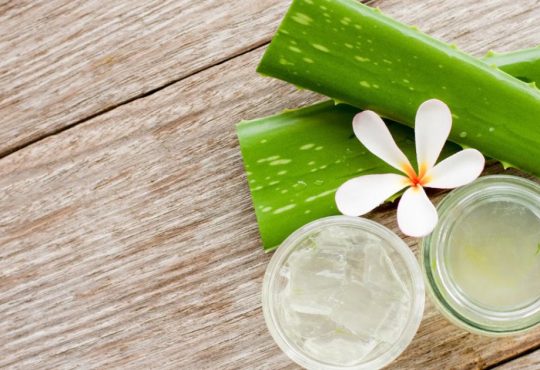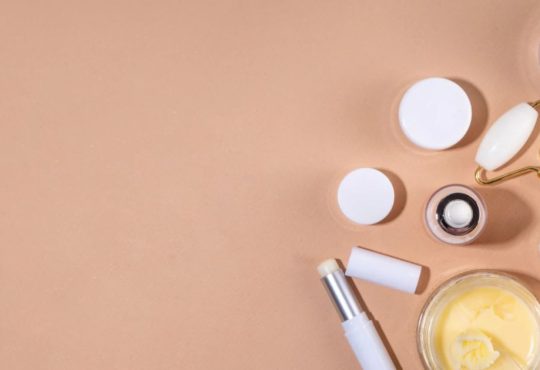4.56Kviews
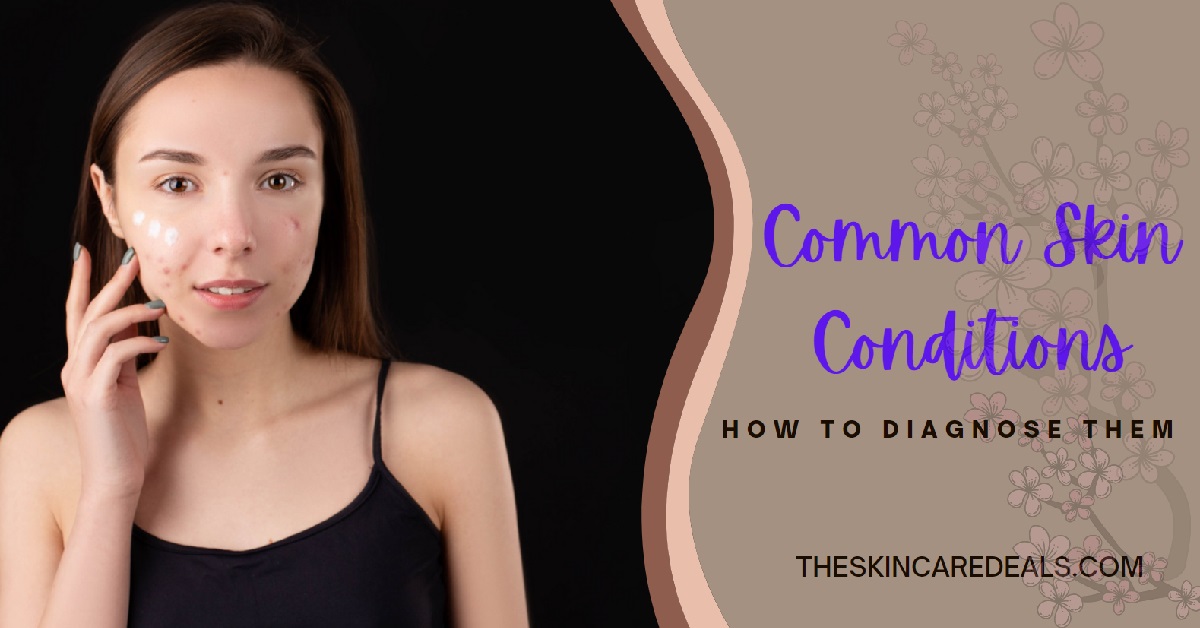
It is very important to keep your skin healthy in order to avoid potential skin problems. By being aware of common skin conditions, you can hopefully avoid them. Keep reading to learn a few and the best ways to diagnose them.
Diagnosis
You should always do what you can to keep your skin as healthy as possible. One of the ways to ensure that you are doing what it takes to have healthy skin is to make sure you identify any potential skin conditions with a skin condition finder. This can tell you what type of skin condition you may have and what steps you can take towards healing or treating it. Research online for some great resources and reviews.
Rosacea
Rosacea typically runs in the family. It can be passed down from parent to child. Blood vessel problems, also called varicose veins, are a major cause of rosacea. When this happens, the blood vessels in the face can become smaller. When they get smaller, they are more prone to irritation by the skin and when this irritation gets worse, inflammation and redness occur. Redness on the face can be caused by problems with blood vessels near the surface of the skin. Sun damage can cause them to become wider, making it much easier for others to see them because they are noticeable in color.
There are many rosacea treatments available today that can provide some relief to your skin condition.
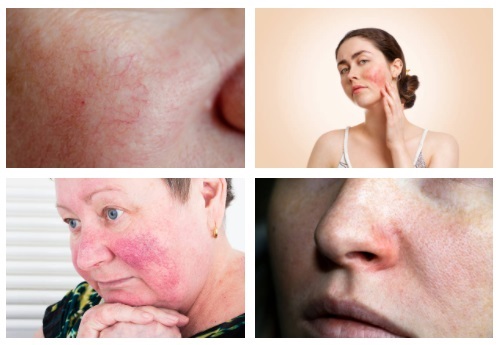
Most rosacea treatments involve some sort of moisturizing and soothing agent such as lotion or cream. There are also many over-the-counter medications that can help reduce the redness and swelling. The most common medications for rosacea treatments include topical creams and ointments containing benzoyl peroxide.
One rosacea treatment that you may have heard about is the use of an eye cream containing retinol. Retinol is a natural form of vitamin A. It works by increasing the amount of collagen in the skin. Collagen is a substance that helps the skin maintain its elasticity. It also provides the skin with essential nutrients, including essential fatty acids, protein, and vitamins C and E. These nutrients are important in keeping the skin looking healthy and vibrant. In addition, retinol also helps reduce inflammation and irritation.
Acne
The most obvious difference between acne and other types of pimples is the fact that acne is actually a disorder and pimples on the other hand are simply one of the manifestations of the disorder. Acne is basically a condition which affects the outermost layer of the skin and is mainly characterized by inflammation. A major reason for the occurrence of acne is hormonal imbalance. The sebaceous gland produces a fluid called sebum, which in turn is secreted by the hair follicles. The sebaceous gland also contains many different types of bacteria that live on the sebaceous gland wall. Over time, the presence of too much bacteria can result in excess sebum production and consequently this leads to a clogging of the hair follicle wall, a sebaceous gland infection and the appearance of pimples.

The proper hygiene is one way through which we can combat the occurrence of acne. Always wash your face at least two times a day with lukewarm water. You should also use a good moisturizer and avoid using soaps that contain alcohol and other harsh ingredients. Drinking plenty of water is another effective way through which we can combat acne and pimple.
Psoriasis
Psoriasis is an extremely common skin condition that causes itchy, flaky patches of red, dry skin with silvery-white scales. You normally get the patches on just the elbows, knees, feet, scalp, chest, stomach, buttocks, face and hands, but they may appear on other areas of the body as well. There are various types of psoriasis, which includes atopic dermatitis, plaque psoriasis and eczema. Most people who have it will get it in their twenties, although some may be affected by it well into their sixties. Many people try various ways of curing it including taking pills, creams and even surgery. However, you should first try natural treatments, which you can do at home.
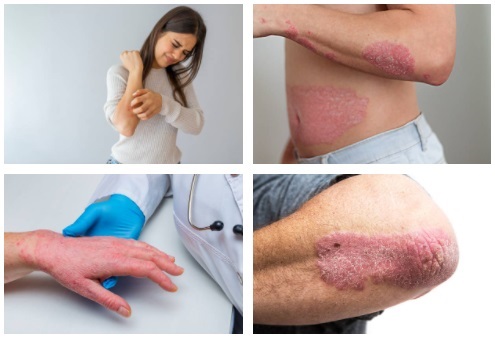
Psoriasis may occur due to a combination of factors including heredity, stress, environmental pollutants and medications. It is therefore important to identify the cause of your condition and then start your treatment. Some of the natural treatments available include using anti-inflammatory creams and natural products that moisturize the skin. Other natural remedies include drinking lots of water, eating foods rich in magnesium and zinc, as well as eating yogurt. Another option is to take a high-fiber supplement. However, if none of the above methods help, then you may need to undergo a skin biopsy to confirm the diagnosis of psoriasis and to decide on the appropriate treatment.
When treating psoriasis, you may also find that you have to use a topical cream or lotion, which helps reduce itching and inflammation. It should also contain vitamin E and zinc. Many people also find relief from these types of treatments when using herbal remedies, which are based on a combination of herbs. One good example of such a natural remedy is tea tree oil, which contains several chemicals that help reduce inflammation and can be effective against psoriasis and other skin problems.
Eczema
Eczema, which is short for atopic eczema, is a collective term for several conditions that cause the skin to be inflamed, crusty, red, itchy, and sometimes even painful. But this word is more often used to describe a particular condition known as atopic dermatitis. In some cases, eczema does not show any symptoms until it has fully developed and taken hold, but other cases may exhibit early signs such as irritation and itching and can be treated at home with moisturizing creams and lotions. It is more likely that it is simply the result of an imbalanced immune system and the body’s attempt to repair itself after being exposed to irritants.
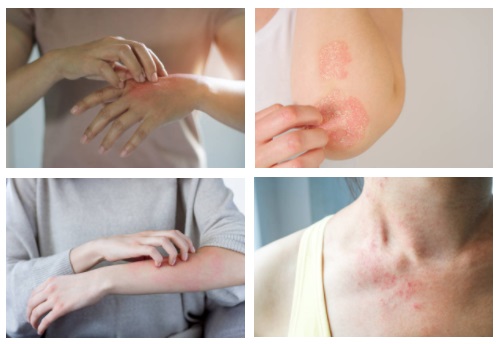
The good news is that atopic eczema, like all types of eczema, responds well to home remedies, if you are willing to try them. Common home remedies include applying a mixture of almond oil, oatmeal, cotton balls, and water to irritated areas. Another popular method of treatment is to apply a mixture of coconut oil and olive oil to inflamed areas, while using a moisturizing face cream. And finally, it is very important to eat a diet full of plenty of fruits, vegetables, grains, nuts, and fish, and drink plenty of water to prevent the body from drying out and causing additional irritation.
Skin conditions such as psoriasis or eczema can actually be caused by another condition, or a weakened immune system. Although some of these skin conditions can present themselves in a fairly straightforward manner, there are many others which take on more complex shapes, and which require a good understanding of the underlying cause.
Final Thoughts
There are many different reasons why the skin on your body becomes irritated. For example, it may be caused by too much exposure to sunlight, or by something as simple as dry air. When this happens it is important to see your doctor to ensure that they know exactly what you are dealing with, as incorrect treatment can do damage to the skin over time. For some people this can be difficult to diagnose, but it is important to make sure that you are receiving the correct treatment to the particular skin condition, and that any other underlying medical conditions are being addressed as well.
add a comment




